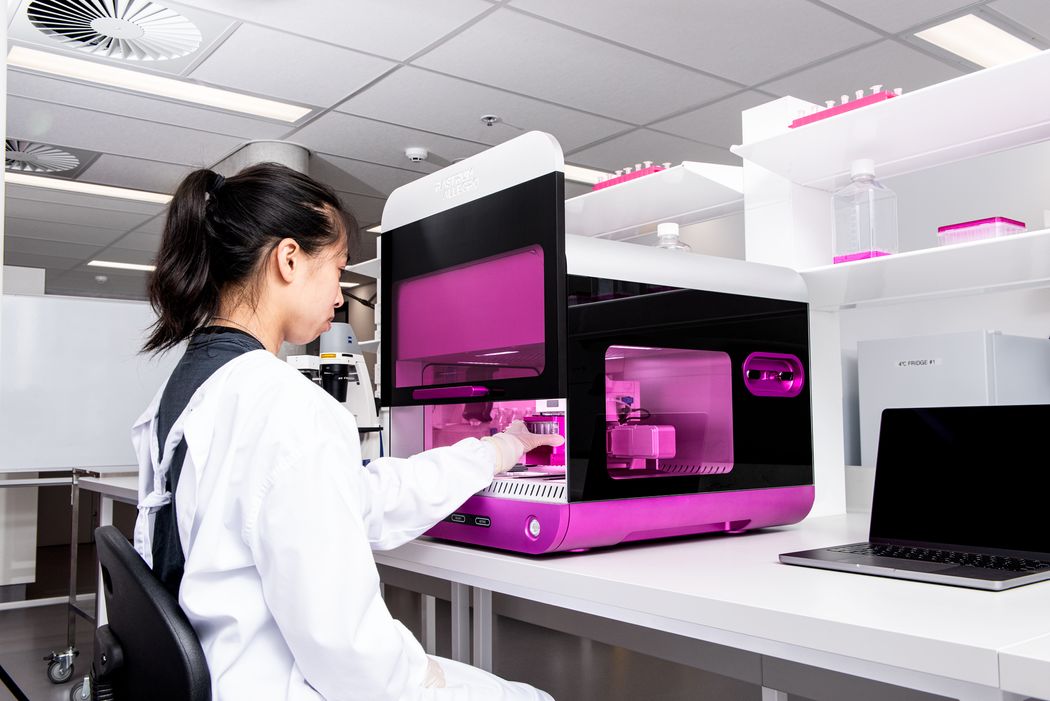
RASTRUM Allegro addresses key challenges faced by researchers, including the need for consistent, scalable 3D models that generate meaningful insights and limited availability of patient-derived cells, which are often challenging to expand and maintain in traditional 3D culture environments. This next-generation platform empowers scientists to create complex, reproducible 3D cell models with minimal hands-on time, making advanced biology more accessible.
Empowering Researchers with Precision and Scalability
"Scientists know the value of biologically relevant models for advancing their work," said Julio Ribeiro, Founder and CEO of Inventia Life Science. "We developed RASTRUM Allegro to give researchers the ability to generate complex 3D cell models that better represent human biology. The system provides the precision and scalability needed to fuel discovery and reveal deeper biological insights."
RASTRUM Allegro makes it easier than ever to create high-throughput 3D cell culture assays that offer both speed and affordability. By significantly reducing per-sample costs, researchers can explore more variables and gain meaningful insights while ensuring data consistency across experiments.
Innovation Aligned with Inventia’s Mission
The development of RASTRUM Allegro reflects Inventia’s broader mission to advance biomedical research by providing innovative tools that mimic disease biology reproducibly and at scale.
"Our commitment is to help researchers unlock new biological insights with confidence," said Ribeiro. "RASTRUM Allegro builds on our proven technology, making it easier for labs to adopt 3D models without compromising quality or accessibility."
Transforming Drug Discovery Workflows
RASTRUM Allegro is already transforming workflows for drug screening and disease modeling. Cameron Ferris, PhD, COO at Inventia Life Science, highlighted its impact: "For years, researchers had to choose between biological complexity and scalability. RASTRUM Allegro eliminates that trade-off, enabling high-throughput 3D cell culture while maintaining reproducibility on par with 2D systems. This shift empowers researchers to explore complex disease phenotypes confidently and scale their experiments for more meaningful insights."
Redefining Research Possibilities
Key benefits of RASTRUM Allegro include:
- Scalability and Speed: Produce 3D cell models in minutes— 6 minutes for a 96-well plate and 9 minutes for a 384-well plate—with throughput of 35+ plates a day.
- Reproducibility: Consistent, high-quality results for both basic research and drug discovery, with post-print CVs of <10% and downstream assay CVs of <19%.
- Efficiency: Optimized for patient-derived samples and translational research, enabling the creation of more models from limited cell numbers— up to 3.5x more cell models compared to previous generations.
- Affordability: Lower cost per well, making 3D culture more accessible.
A Bold Vision for the Future
RASTRUM Allegro represents more than a technological milestone—it’s a step toward democratizing 3D cell culture for all researchers. "This is generational change for research and human health," concluded Ribeiro. "We’re making 3D cell culture an everyday tool for labs worldwide, enabling new possibilities in disease understanding and therapeutic discovery."

















